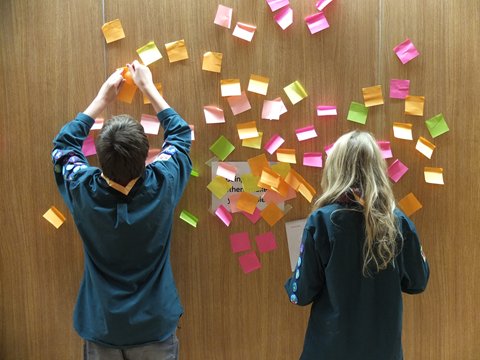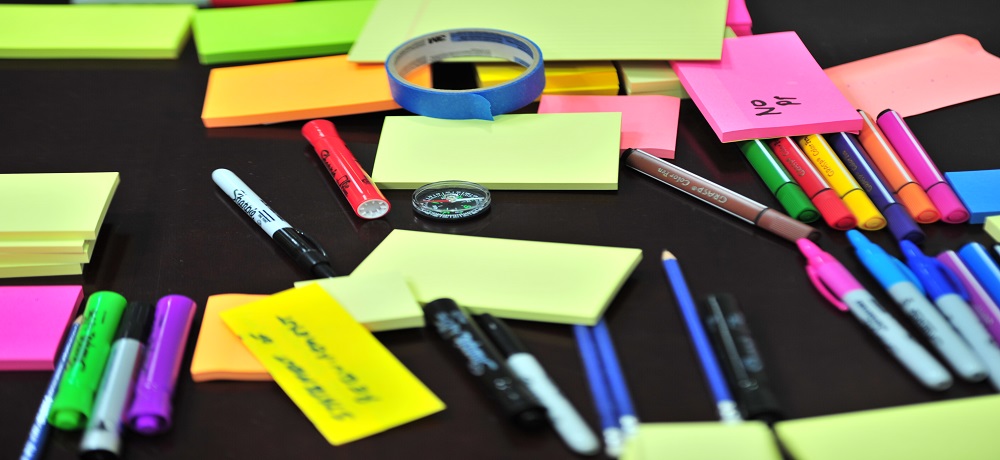Our latest guest post has kindly been provided by Alex Clegg, Communities Coordinator at Sense About Science, an independent charity that champions the public interest in sound science and ensures evidence is recognised in public life and policy making.
A teacher at a conference I recently spoke at described how her pupils on their route from history to science class change their ‘thinking hats’. Source corroboration is left in one classroom as logical reasoning is picked up in another. Approaching critical thinking as a skill for the classroom will only get people so far, as information comes from a variety of sources and relates to a range of real-world issues young people face.
This approach is increasingly important as schools close and information about coronavirus finds its way into every conversation. We need to equip young people with the right questions to ask when they come across information that they are not sure about. At Sense about Science we have developed these questions since 2017, working with children, educators and youth group leaders around the UK to develop an out-of-school Evidence Hunter activity pack to encourage critical thinking, as part of our Ask for Evidence campaign. These resources empower young people by equipping them to ask, ‘What is the evidence behind this claim?’ Our work aims to develop their critical thinking skills so they can assess information online and make informed decisions. This week we are the guest campaign on Mumsnet. It’s good timing as families look for worthwhile activities to do together at home during the school closure, as well as ways to help make sense of the barrage of information about the pandemic.
Most young people feel at home online and many use social media to get news and information about everything from climate change to diet through sneak peeks at their phones in class, from YouTube influencers and on social media. Although social media is judged the least trustworthy source of news by 12 to 15 year olds, it is still considered an important one (Ofcom, 2020). Approaching critical thinking skills outside the classroom suits how young people receive and understand information.
Despite what some STEM advocates may want you to think, not everyone loves to talk about science all of the time. Our work with community groups at Sense about Science has shown us that people become engaged with science and evidence when they face difficult decisions, new diagnoses or information on an issue that’s important to them. If we are to engage young people and develop the key information literacy skills they’ll need in the future, we can’t start with a lesson. Instead what we do must be relatable, engaging and useful – for their lives now and in the future.
 Informal learning environments are key to enabling these conversations as, despite how it might feel to them, young people spend the majority of their time outside the classroom. We co-created the Evidence Hunter activity pack with scout groups and it has since been taken up by other youth organisations across the UK, including girl-guiding groups, holiday and after-school clubs, and parents groups. We would love to see libraries and other information hubs promote these information literacy skills so that young people know where they can go to apply these skills when they face that next decision they are unsure about.
Informal learning environments are key to enabling these conversations as, despite how it might feel to them, young people spend the majority of their time outside the classroom. We co-created the Evidence Hunter activity pack with scout groups and it has since been taken up by other youth organisations across the UK, including girl-guiding groups, holiday and after-school clubs, and parents groups. We would love to see libraries and other information hubs promote these information literacy skills so that young people know where they can go to apply these skills when they face that next decision they are unsure about.
The Evidence Hunter activity pack is free to download. All you will need to run through the activities is a print-out of the attached material and a set of counters or tokens, such as Post-It notes. The pack includes guidance on the different types of evidence and how you can help your group think critically about the claims they might encounter in day-to-day life.
If you have used the activity pack or have had a look through, we would love to hear your thoughts and comments by emailing alex@senseaboutscience.org. We are currently updating the pack’s content and examples, and welcome feedback from young people, educators, youth group leaders and information professionals.
At a youth club in Newcastle, one attendee said: “I learnt a lot from the session and I will remember it in the future” and a London student learnt “to not just look at a product or phrase and agree with it but to look into the evidence and facts to support why you agreed with it and maybe change your mind.” Celia, a London Scout Leader, has seen the impact too: “We assume that our scouts are making rational decisions and it was eye-opening to realise how uncritical they can be of media sources. This exercise has got them starting to think about how they might be misled if they don’t think carefully about motivation and evidence.”
Interested in writing a guest post for our blog? We would welcome any case study submissions that would help to showcase interesting work that is going on in the field of information literacy. Get in touch with us!




